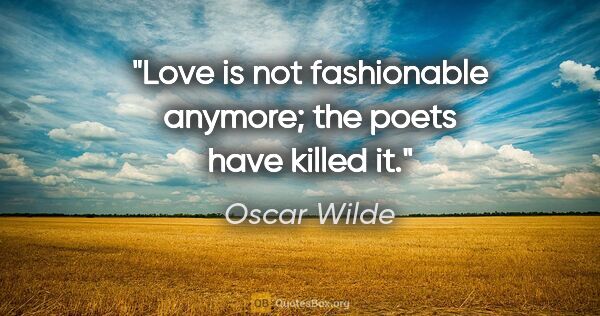Poets Quotes (page 22)
Whatever inspiration is, it's born from a continuous "I don't know."...That is why I value that little phrase "I don't know" so highly. It's small, but it flies on mighty wings. It expands our lives to include spaces within us as well as the outer expanses in which our tiny Earth hangs suspended...Poets, if they're genuine, must always keep repeating "I don't know.
Wislawa Szymborska
Very deep things in our nature, some dim sense of the dependence of great things upon small, some dark suggestion that the things nearest to us stretch far beyond our power, some sacramental feeling of the magic in material substances, and many more emotions past fading out, are in an idea like that of the external soul. The power even in the myths of savages is like the power in the metaphors of poets. The soul of such a metaphor is often very emphatically an external soul.
Gilbert K. Chesterton
Do the poet and scientist not work analogously? Both are willing to waste effort. To be hard on himself is one ...of the main strengths of each. Each is attentive to clues, each must narrow the choice, must strive for precision. As George Grosz says, “In art there is no place for gossip and but a small place for the satirist.” The objective is fertile procedure. Is it not? Jacob Bronowski says in The Saturday Evening Post that science is not a mere collection of discoveries, but that science...
Marianne Moore
By the sweet power of music: therefore the poet did feign that Orpheus drew trees, stones and floods; since nought so stockish, hard and full of rage, but music for the time doth change his nature. The man that hath no music in himself, nor is not moved with concord of sweet sounds, is fit for treasons, stratagems and spoils; The motions of his spirit are dull as night and his affections dark as Erebus: Let no such man be trusted. Mark the music.
William Shakespeare
The emotion of art is impersonal. And the poet cannot reach this impersonality without surrendering himself wholly to the work to be done. And he is not likely to know what is to be done unless he lives in what is not merely the present, but the present moment of the past, unless he is conscious, not of what is dead, but of what is already living.
T. S. Eliot
At last everything was satisfactorily arranged, and I could not help admiring the setting: these mingled touches betrayed on a small scale the inspiration of a poet, the research of a scientist, the good taste of an artist, the gourmet’s fondness for good food, and the love of flowers, which concealed in their delicate shadows a hint of the love of women
August Strindberg

![Dylan Thomas quote: "[I'm]a freak user of words, not a poet."](/pic/346446/600x316/quotation-dylan-thomas-ima-freak-user-of-words-not-a-poet.jpg)

